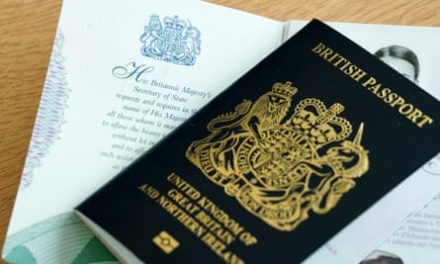The UK risks becoming highly reliant on overseas care workers after nearly 58,000 visas were issued for the sector last year, a report says.
Analysis by the Migration Observatory at the University of Oxford found that the demand for foreign staff had left the NHS and care homes open to “vulnerabilities” including “exposure to international competition for health workers and risks of exploitation”.
In the year to March, 57,700 care workers received skilled work visas, the report says.
The proportion of staff in the residential care sector who worked for an employer that held a sponsor licence increased from 10% to 39% from February 2022 to March 2023 – the first 13 months after care workers became eligible for skilled work visas.
Last month Rishi Sunak faced criticism from his own MPs after official figures showed overall migration into the UK for 2022 was 606,000, which represented a 24% increase on the previous high of 488,000 the year before.
Dr Madeleine Sumption, the director of the Migration Observatory, said: “Health and care employers have benefited a lot from international recruitment.
“But relying this much on overseas recruits also brings risks. For example, care workers on temporary visas are vulnerable to exploitation and the rapid growth in overseas recruitments makes monitoring pay and conditions a real challenge.”
The study, commissioned by the employment group ReWAGE, also examined where care workers were coming from. In 2022, 99% of care workers sponsored for work visas in the UK were from non-EU countries. The top countries were India (33%), Zimbabwe (16%), Nigeria (15%) and the Philippines (11%).
India was also the top country of nationality for newly recruited overseas doctors (20%) and nurses (46%).
The report found that by October 2022, just under half (47%) of fully qualified secondary care doctors (usually specialists who have patients referred to them by GPs) registered in the UK had received their primary qualification outside of the UK or Ireland.
after newsletter promotion
By March 2023, 21% of people on the Nursing and Midwifery Council register had trained overseas, up from about 15% five years earlier.
In October, the home secretary, Suella Braverman, said her “ultimate aspiration” was to reduce net migration to the UK to the tens of thousands.
A government spokesperson said: “We will continue to strike the right balance between supporting the UK economy and upholding our commitment to reduce migration over time.
“Skilled worker visas mean we can attract the high-skilled talent the UK needs to grow the economy and boost prosperity, including frontline health and care workers.
“The supply of homegrown NHS staff is increasing, with record numbers of doctors and nurses, and international recruitment is only one part of growing the NHS workforce.”
Join the exciting world of cryptocurrency trading with ByBit! As a new trader, you can benefit from a $10 bonus and up to $1,000 in rewards when you register using our referral link. With ByBit’s user-friendly platform and advanced trading tools, you can take advantage of cryptocurrency volatility and potentially make significant profits. Don’t miss this opportunity – sign up now and start trading!






Recent Comments